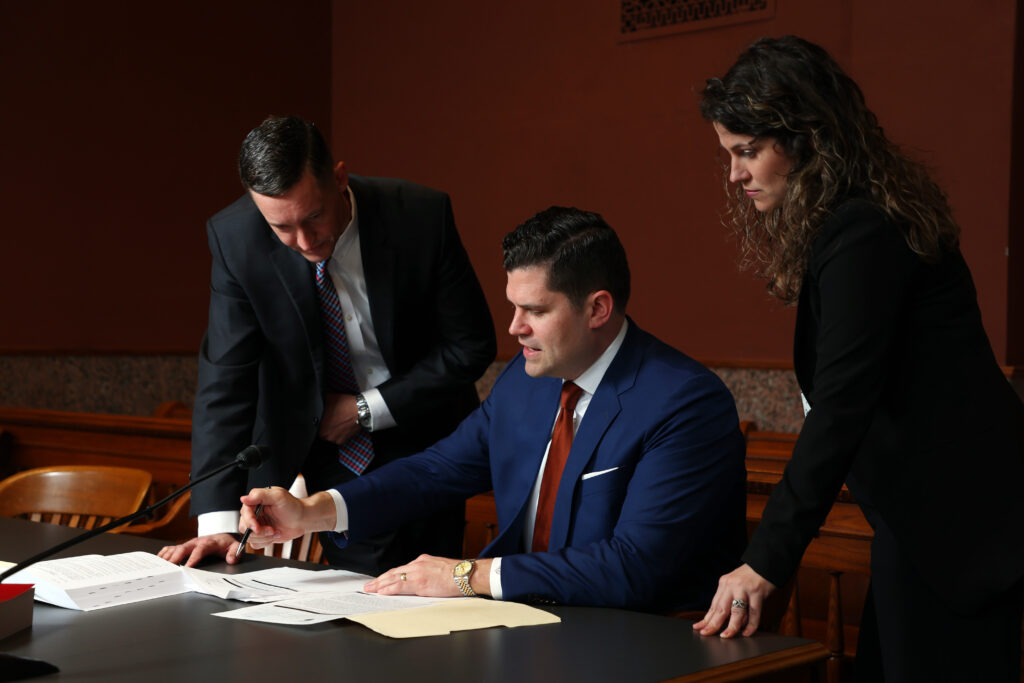If you’re facing DWI charges in Fort Worth or anywhere in Tarrant County, time is critical. A conviction can mean losing your license, paying steep fines, or even serving jail time. Don’t face these charges alone.
Graham Norris has helped many clients fight DWI charges in Tarrant County courts, securing dismissals, reduced charges, and favorable outcomes even in challenging cases. Contact us now for a free case evaluation using our confidential online form, or call the number below.

Why Clients Choose Norris Legal Group as Their DWI Lawyer in Fort Worth
- Local Tarrant County Court Experience: We understand Fort Worth’s court system and have relationships with local prosecutors
- Proven Results: Over 400 case dismissals and 60+ grand jury “no-bills” across 3,600+ criminal cases
- Personal Attention: Your case isn’t just another file – Graham personally handles your defense
- Immediate Response: Quick action can save your license and strengthen your defense
“Graham Norris was the BEST thing to happen to me during a time of crisis. He was extremely knowledgeable, professional, understanding, and kind. Not once did he condescend or judge me for the situation I was in. I’ll never forget him or what he did to help me.” — Ally Turner, Fort Worth
Why an Experienced Fort Worth DWI Lawyer Matters: Recent Case Successes in Tarrant County
Case: Prescription Medication DWI Dismissed
Our client faced DWI charges due to confusion caused by prescription medication and heat stroke. The prosecution initially refused to consider dismissal despite the medical emergency. Through expert testimony and persistent advocacy, Graham secured a complete dismissal on the eve of trial.
Case: Second-Time DWI Reduced
A client facing significant jail time for a second DWI offense was looking at career-ending consequences. We developed a proactive strategy, enrolling him in treatment programs before court appearances and documenting his commitment to change. The result: charges reduced to a first-time DWI with probation instead of jail, allowing him to keep his job.
How We Defend DWI Cases in Fort Worth
When you hire Norris Legal Group, we immediately begin building your defense:
- Comprehensive Case Analysis: We examine police reports, video evidence, and testing procedures to identify weaknesses in the prosecution’s case
- Administrative License Defense: We fight to protect your driving privileges at the ALR hearing
- Evidence Challenges: We challenge improper stops, field sobriety tests, and breath/blood testing procedures
- Strategic Negotiation: When appropriate, we negotiate for reduced charges or alternative sentencing options
- Trial Preparation: If your best option is trial, we prepare meticulously to present your strongest defense
“Graham has been with me every step of the way through this process. My case was dismissed due to his hard work and skills. I cannot recommend him highly enough.” — Colby Gallatin
Contact us now for a free case evaluation, or call (817) 859-8985.
An Overview of DWI Charges in Tarrant County
DWI vs. DUI in Texas
In Texas, these terms have specific legal meanings:
- DUI (Driving Under the Influence): This charge typically applies to minors under the age of 21 who have consumed alcohol but are not legally intoxicated. Even if their blood alcohol content (BAC) is below the legal limit of 0.08%, minors can still face DUI charges if any detectable amount of alcohol is found in their system. DUI is considered a Class C misdemeanor, which is less severe than a DWI.
- DWI (Driving While Intoxicated): This charge applies to adults (and minors if they are legally intoxicated) who have lost the normal use of their mental or physical abilities due to alcohol or drugs according to Texas Penal Code. A DWI is a more serious charge and can result in significant legal consequences, including fines, license suspension, and jail time. The legal limit for BAC in Texas is 0.08% for adults, and exceeding this limit can lead to a DWI charge.
For more details on the differences, see our guide on DUI vs. DWI in Texas and what makes them different.
Risk of License Suspension
One of the most immediate consequences of a DWI arrest is the threat to your driving privileges. The Department of Public Safety (DPS) initiates an administrative process to suspend your driver’s license separate from your criminal case.
The Critical Timeline After a Fort Worth DWI Arrest
When arrested for DWI in Tarrant County, you face two separate legal processes:
1. Administrative License Revocation (ALR)
You only have 15 days from arrest to request a hearing to keep your license. This deadline is strict and missing it means automatic suspension.
2. Criminal DWI Case
This process determines your criminal penalties and requires strategic defense planning from the start.
Don’t wait to get help. Early intervention gives you the strongest chance of a favorable outcome.
About Graham Norris: A Trusted Fort Worth DWI Lawyer
Graham Norris founded Norris Legal Group with a mission to provide unwavering support and rigorous legal representation to people facing criminal charges in Tarrant County. As a former prosecutor, he understands how the other side builds cases and uses this insight to create effective defense strategies.
Graham’s approach to DWI defense is built on the core principles of:
- Dignity: Treating every client with respect regardless of their circumstances
- Trust: Providing honest assessments and maintaining clear communication
- Fight: Aggressively pursuing every avenue to protect your rights and future
“I can’t believe I’ll say this about a lawyer, but I’m so grateful for Graham. He made everything so smooth, and helped me get through the craziness of all my court proceedings.” — Cameron Huey
New Hope Through Recent Texas DWI Law Changes
Recent changes to Texas law now allow certain DWI cases to qualify for deferred adjudication, potentially leading to an expunction that keeps a DWI off your record. This option, previously unavailable for DWI cases, requires specific criteria and experienced legal navigation.
Graham Norris stays current on all changes to Texas DWI laws and knows how to help qualified clients benefit from these new options.
Protecting Your Future in Tarrant County
A DWI charge doesn’t have to define your future. With proper legal representation, you may be able to:
- Keep your driving privileges
- Avoid jail time
- Minimize financial penalties
- Protect your career opportunities
- Maintain your reputation in the community
It’s also important to understand the statute of limitations for DWI charges in Texas when planning your defense strategy.
Get Your Free Case Evaluation Today

Don’t wait until it’s too late to start building your defense. Contact Norris Legal Group today for a free, confidential consultation about your Fort Worth DWI case.
Contact us now for a free case evaluation, or call (817) 859-8985.
Serving clients throughout Tarrant County including Fort Worth, Arlington, Bedford, Mansfield, Euless, Hurst, Keller, Southlake, and surrounding areas.